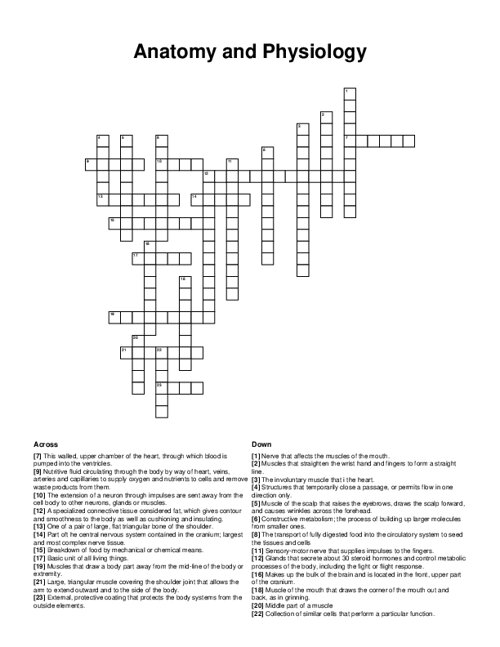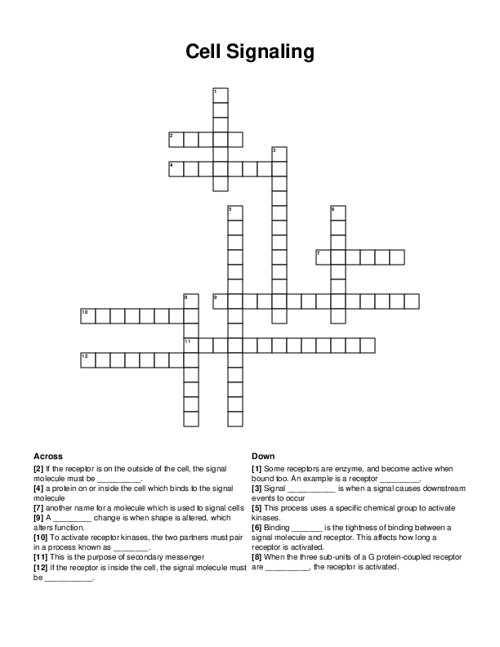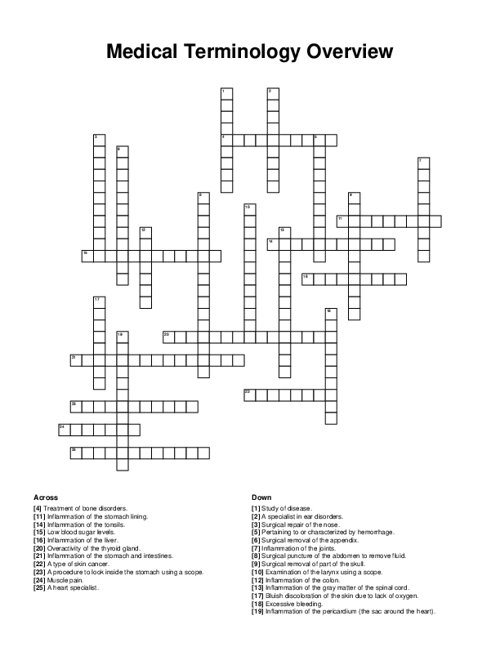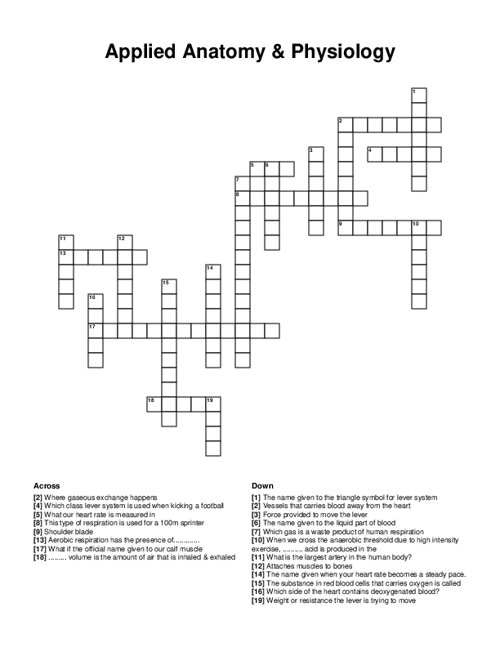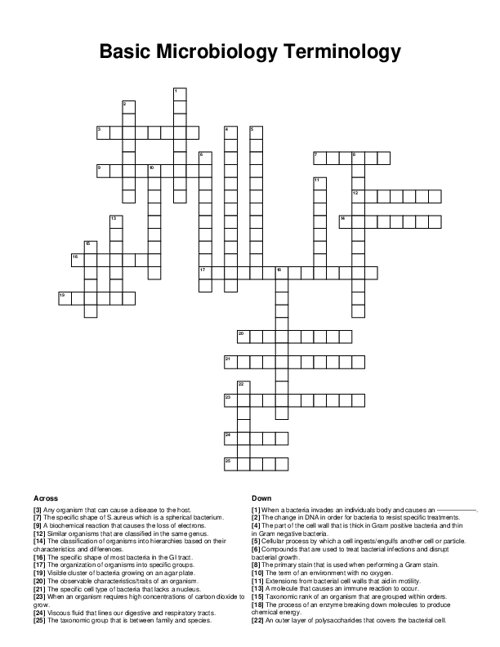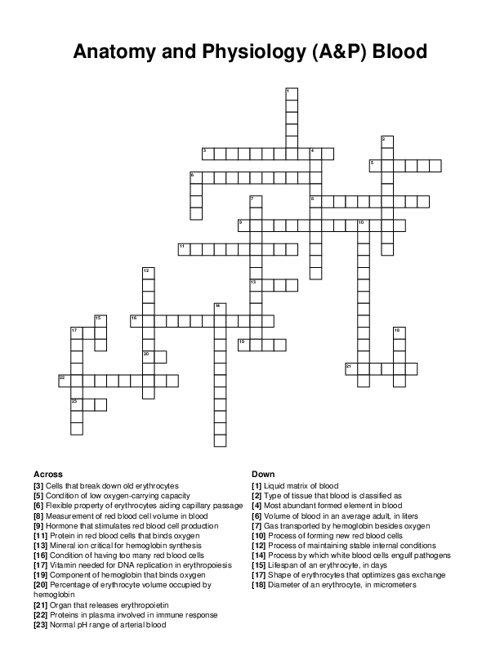Anatomy and Physiology Crossword Puzzle
Download and print this Anatomy and Physiology crossword puzzle.
QUESTIONS LIST:
- skin : external, protective coating that protects the body systems from the outside elements.
- tissue : collection of similar cells that perform a particular function.
- digital nerve : sensory-motor nerve that supplies impulses to the fingers.
- blood : nutritive fluid circulating through the body by way of heart, veins, arteries and capillaries to supply oxygen and nutrients to cells and remove waste products from them.
- deltoid : large, triangular muscle covering the shoulder joint that allows the arm to extend outward and to the side of the body.
- extensors : muscles that straighten the wrist hand and fingers to form a straight line.
- axon : the extension of a neuron through impulses are sent away from the cell body to other neurons, glands or muscles.
- brain : part oft he central nervous system contained in the cranium; largest and most complex nerve tissue.
- digestion : breakdown of food by mechanical or chemical means.
- cerebrum : makes up the bulk of the brain and is located in the front, upper part of the cranium.
- risouris : muscle of the mouth that draws the corner of the mouth out and back, as in grinning.
- belly : middle part of a muscle
- cells : basic unit of all living things.
- adipose tissue : a specialized connective tissue considered fat, which gives contour and smoothness to the body as well as cushioning and insulating.
- frontalis : muscle of the scalp that raises the eyebrows, draws the scalp forward, and causes wrinkles across the forehead.
- scapula : one of a pair of large, flat triangular bone of the shoulder.
- absorption : the transport of fully digested food into the circulatory system to seed the tissues and cells
- atrium : this walled, upper chamber of the heart, through which blood is pumped into the ventricles.
- valves : structures that temporarily close a passage, or permits flow in one direction only.
- adrenal glands : glands that secrete about 30 steroid hormones and control metabolic processes of the body, including the fight or flight response.
- anabolism : constructive metabolism; the process of building up larger molecules from smaller ones.
- abductors : muscles that draw a body part away from the mid-line of the body or extremity.
- buccal nerve : nerve that affects the muscles of the mouth.
- cardiac muscle : the involuntary muscle that i the heart.
